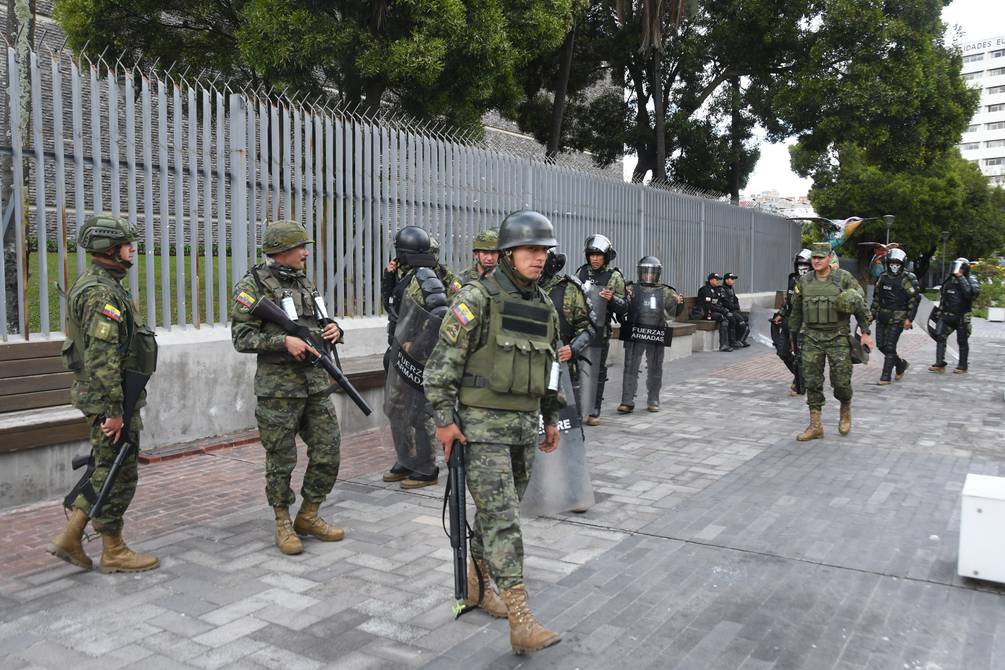
Ecuador
Civicus Rating| Obstructed
On June 7, the National Assembly approved with a large majority a law regulating the legitimate use of force by security agents and armed forces.
Among the principles governing the use of force are absolute necessity, proportionality, precaution, non-discrimination and accountability. The use of force becomes, ultimately, a last resort to be resorted to only to prevent an offense, detain the offender, defend protected property or in the face of resistance to authority. The use of lethal weapons is prohibited, except for self-defense against threats, crimes, attempted arrests or escapes that pose a risk to the lives of the agents or third parties.
Security agents are recognized the right to receive education, instruction and training for the differentiated use of force with a focus on human rights and to refuse to obey orders from superiors that violate human rights or that are illegitimate. In turn, they are obliged to identify and use the least harmful means available to protect life and personal integrity, guarantee the right under international human rights standards, protect vulnerable groups, attend training on human rights with an intercultural approach, guarantee security in the context of peaceful social protests and respect the exercise of the constitutional right to resistance.
The law establishes codes of conduct and principles to regulate the use of force in specific contexts such as in the case of peaceful social gatherings and detention centers. The right to resistance and protest is guaranteed, prohibiting the use of potential or intentionally lethal force. It does not apply to episodes of violence such as those that have taken place inside prisons in recent months.
The regulation of the use of force had been on the agenda of Congress and the government for a long time. However, the serious internal commotion generated by the penitentiary crisis and the social protests, which resulted in the repeated use of the state of emergency, could have contributed to accelerate a debate that seemed stalled. As of today, the internal insecurity situation remains critical, so President Guillermo Lasso again declared a state of emergency on June 18 in the states of Chimborazo, Tungurahua, Cotopaxi, Pichincha, Pastaza and Imbabura with suspension of the rights of association, assembly and freedom of transit.


